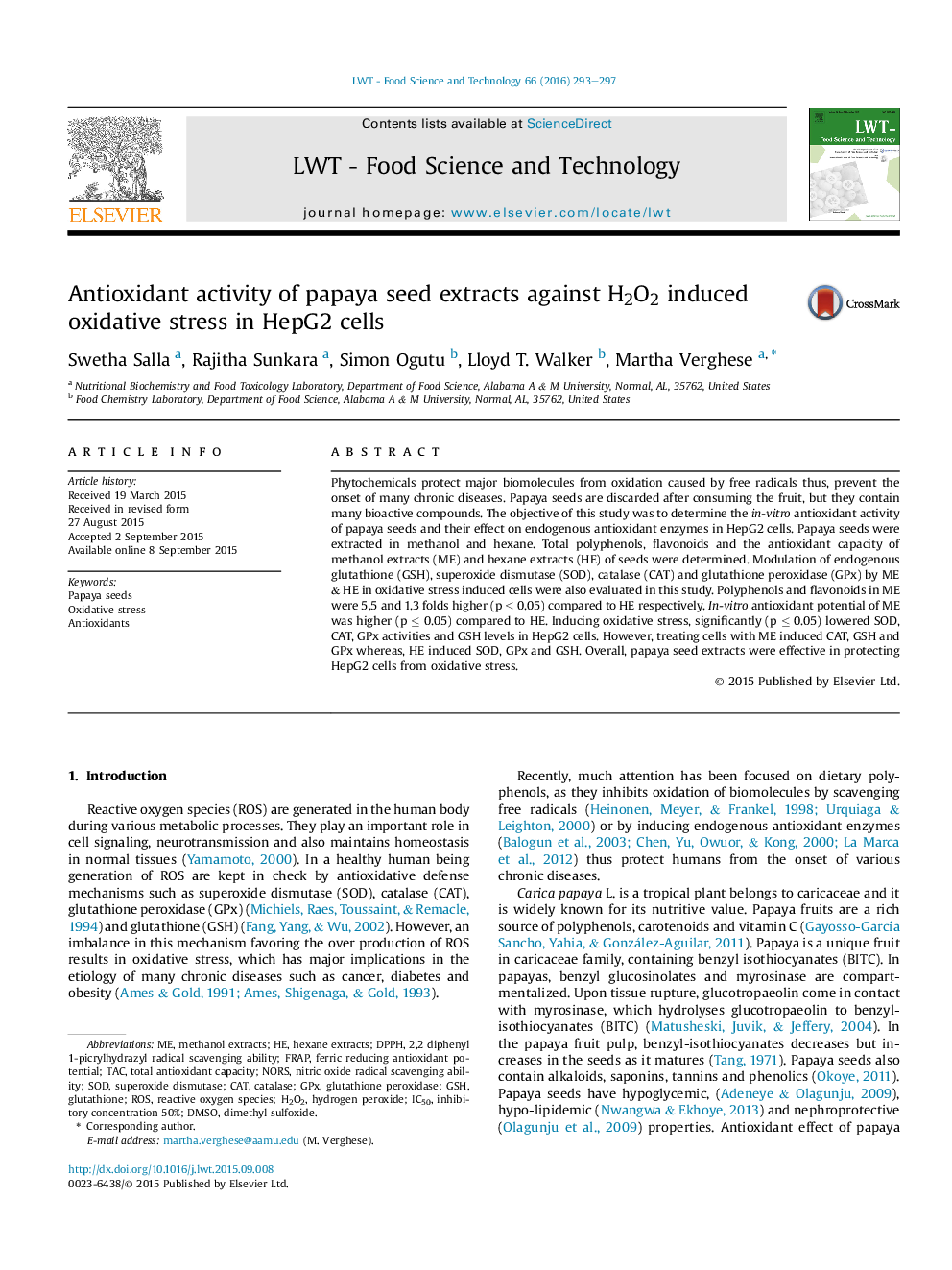| Article ID | Journal | Published Year | Pages | File Type |
|---|---|---|---|---|
| 6400944 | LWT - Food Science and Technology | 2016 | 5 Pages |
â¢Papaya seeds contain polyphenols, flavonoids, alkaloids, tannins and saponins.â¢Papaya seeds exhibited in-vitro antioxidant activity.â¢Papaya seed extracts induced endogenous antioxidant enzymes in HepG2 cells.â¢Thus papaya seeds offered protection to cells from oxidative stress.â¢Papaya seeds may be as functional food ingredient in alleviate oxidative stress.
Phytochemicals protect major biomolecules from oxidation caused by free radicals thus, prevent the onset of many chronic diseases. Papaya seeds are discarded after consuming the fruit, but they contain many bioactive compounds. The objective of this study was to determine the in-vitro antioxidant activity of papaya seeds and their effect on endogenous antioxidant enzymes in HepG2 cells. Papaya seeds were extracted in methanol and hexane. Total polyphenols, flavonoids and the antioxidant capacity of methanol extracts (ME) and hexane extracts (HE) of seeds were determined. Modulation of endogenous glutathione (GSH), superoxide dismutase (SOD), catalase (CAT) and glutathione peroxidase (GPx) by ME & HE in oxidative stress induced cells were also evaluated in this study. Polyphenols and flavonoids in ME were 5.5 and 1.3 folds higher (p â¤Â 0.05) compared to HE respectively. In-vitro antioxidant potential of ME was higher (p â¤Â 0.05) compared to HE. Inducing oxidative stress, significantly (p â¤Â 0.05) lowered SOD, CAT, GPx activities and GSH levels in HepG2 cells. However, treating cells with ME induced CAT, GSH and GPx whereas, HE induced SOD, GPx and GSH. Overall, papaya seed extracts were effective in protecting HepG2 cells from oxidative stress.
